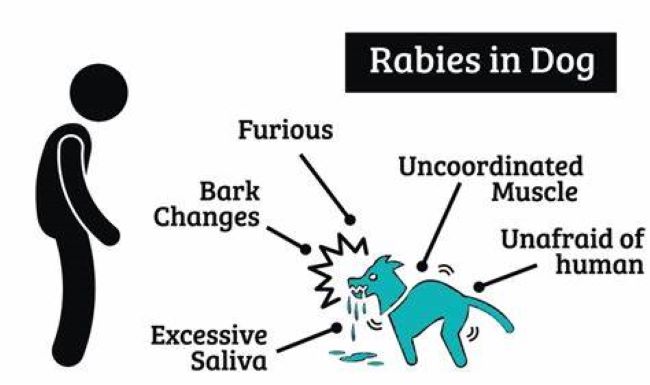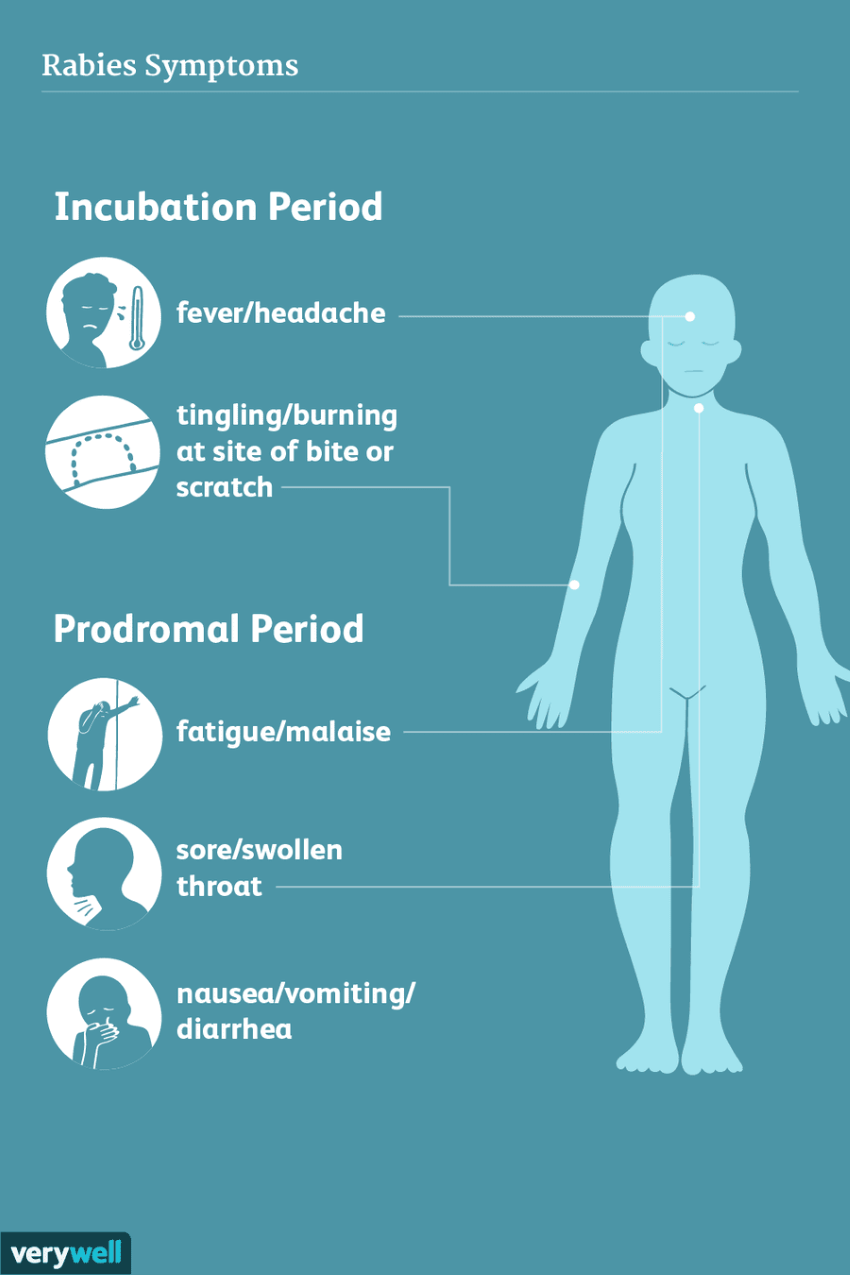Wild and domestic animals have the potential to carry rabies which can be passed on to humans by the bite or saliva of an infected animal. Rabies is a deadly viral infection that affects the nervous system of humans if not treated quickly after exposure. Rabies should be suspected in all animals that show a sudden change in behavior that is different from normal, such as animals normally active at night being seen during the day.

Be alert when around wild animals and do not approach them. Baby animals such as raccoons or opossums may be cute but should never be touched or handled. Bats are important bug eaters in Nebraska but are also a common carrier of rabies. Bats should always be treated with caution, especially if they need to be removed from human spaces. Trap and remove bats using containers and thick gloves to make sure there is no direct contact or contact a professional to remove them.
- Rabies is a viral disease that is deadly in people if medical care is not received before symptoms start.
- Rabies is spread to humans and pets primarily through bites or scratches from an infected animal.
- Rabies control measures in the United States have significantly reduced rabies as a public health threat.
- Each year 60,000 Americans receive medical care following a potential rabies exposure.
If you believe you had contact with a bat or other sick animal, contact your healthcare provider or the public health nurses at 308-345-4223 for more information and instructions.
The best way you can prevent rabies is by:
- Making sure your pets are up-to-date on their rabies vaccines;
- Keeping wildlife wild - stay away from wildlife for both human and animal safety;
- Calling animal control to remove stray animals from your neighborhood;
- Washing bites or scratches immediately with soap and water; and
- Seeking medical care shortly after potential exposures.

